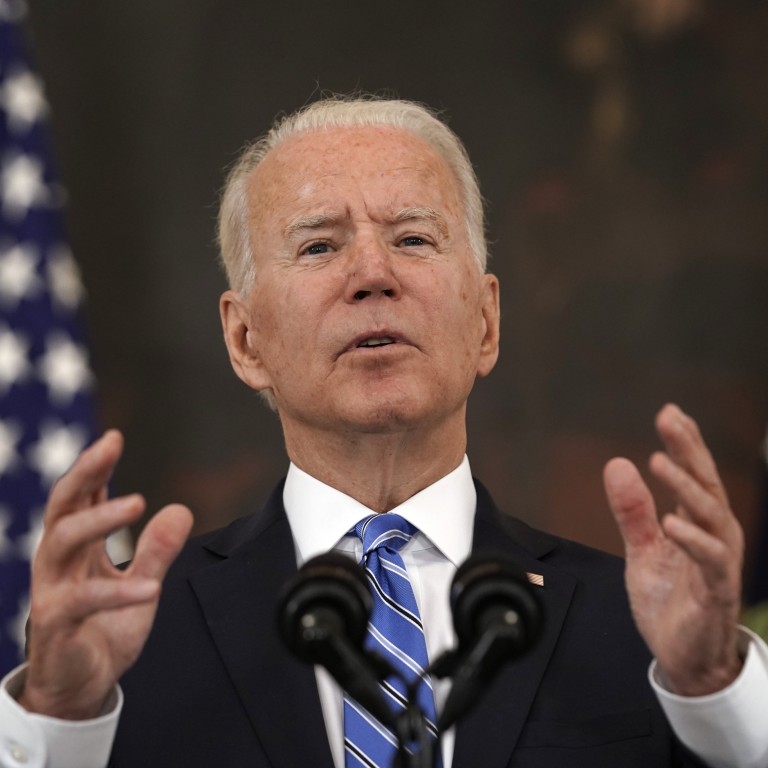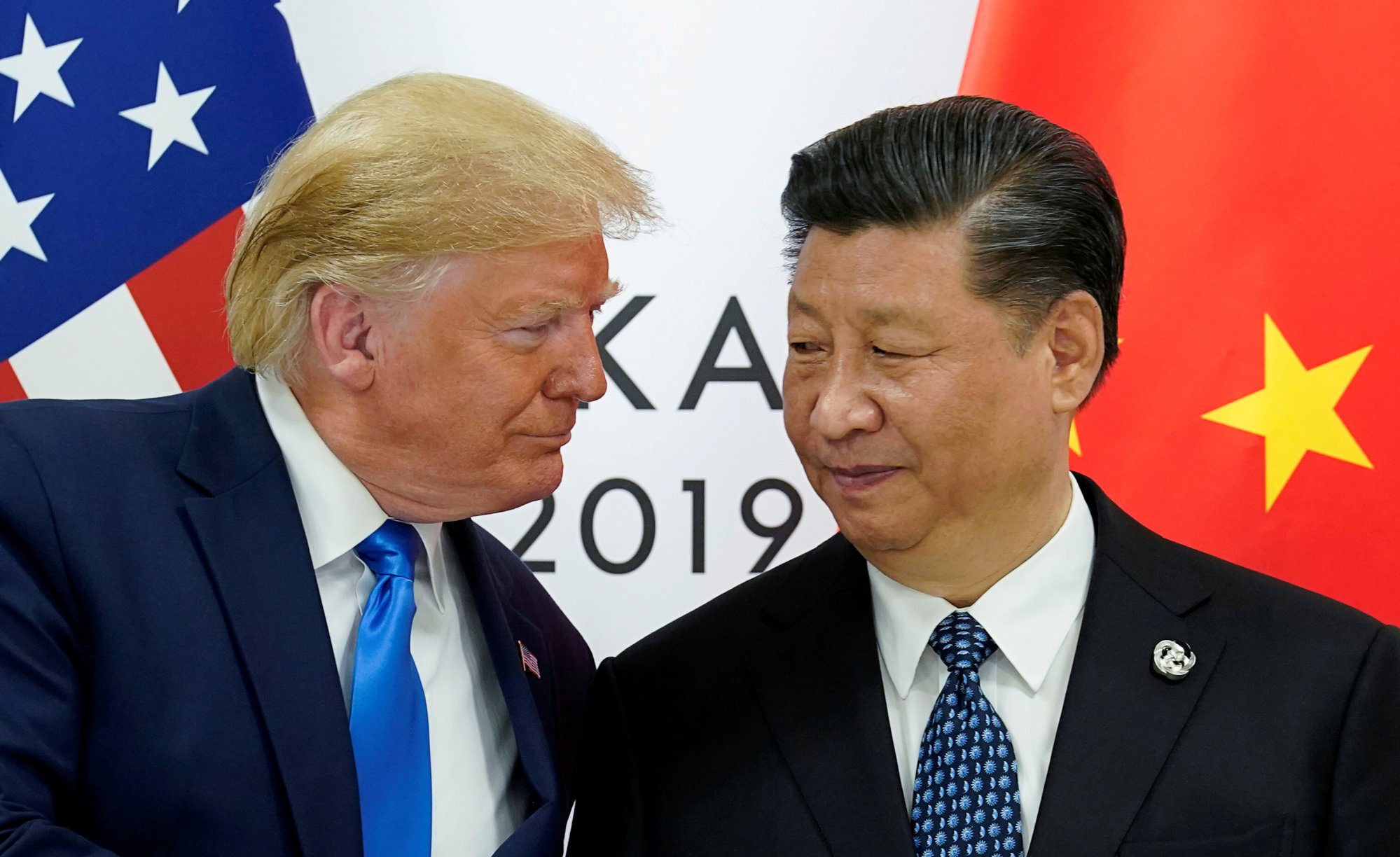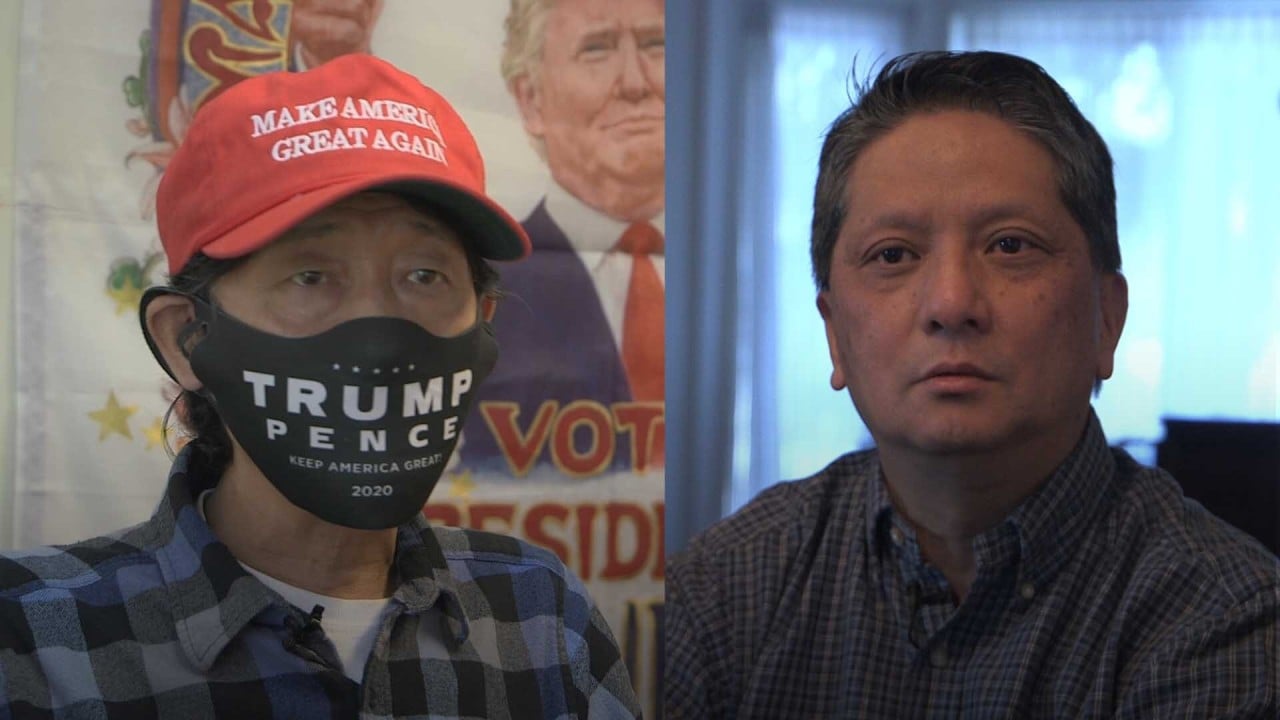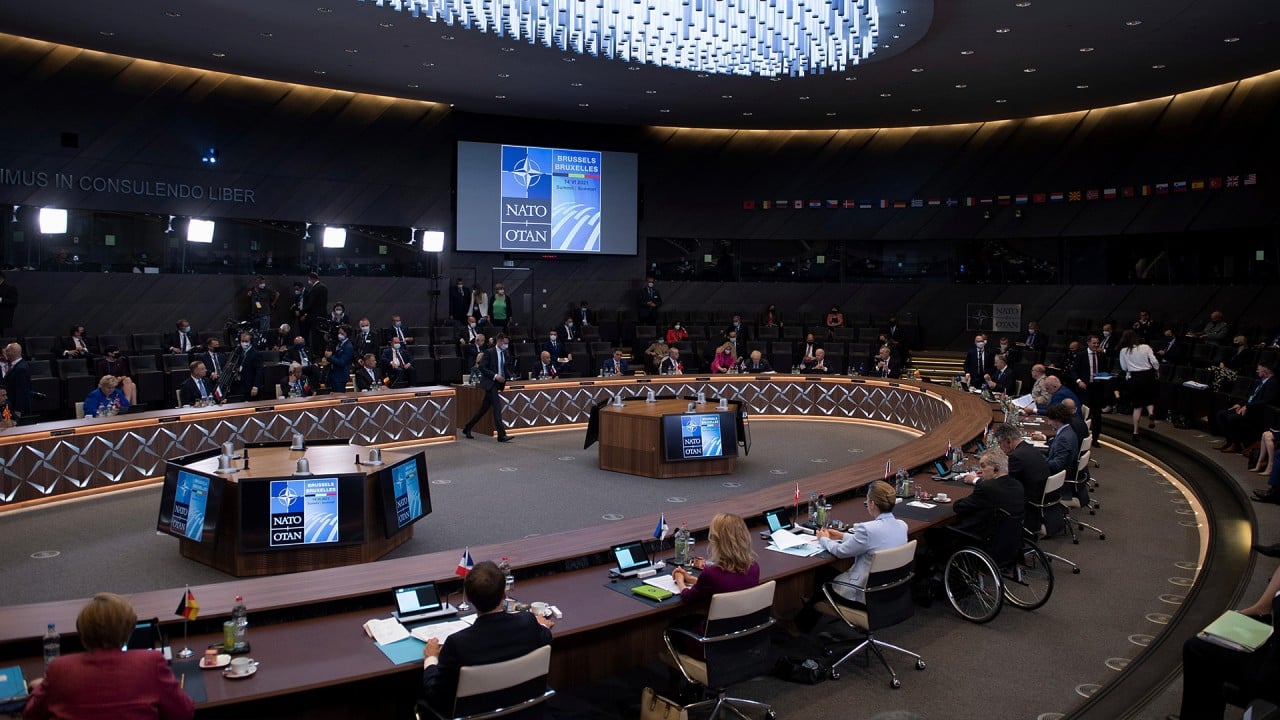
Joe Biden promotes liberal values, but could learn a lesson or two from Imperial China
- The US foreign policy establishment’s embrace of a ‘clash of civilisations’ narrative encourages guilt by association, a legal fiction abandoned in China 2,000 years ago
- The China Initiative, administered by the US Department of Justice, undermines the rule of law and fosters a permissive atmosphere for racial profiling
US President Joe Biden assumed office promising a departure from Donald Trump’s disruptive foreign policy, but his administration has embraced the same zero-sum rhetoric where China is concerned. That approach could bifurcate the globe politically and technologically along racial lines, yet the project has instead been promoted as a contest of values.
Writing in Foreign Affairs, Huntington argued liberal values were unique to the West. Although untrained in Asian languages or history, he declared that with few exceptions the Muslim, Hindu, Buddhist and Confucian traditions, as he characterised them, would never accept liberal values. This, he argued, would inevitably lead to a clash of civilisations.
Huntington was careful to use religious labels for his “civilisations”. Otherwise, anyone could have seen he was in fact talking about race.
The US president is known as a liberal on matters of race, yet Team Biden has adopted Trump’s China policy. One of its core programmes, the so-called China Initiative run by the Department of Justice (DoJ), has been plagued by charges of racial profiling.
In one instance, a letter to Biden from community and civil rights groups maintained that under this programme Chinese scientists were being prosecuted for activities “not normally treated as crimes except under the pretext of combating economic espionage”.
The DoJ has denied race is a factor but evidence of racial profiling is not easily dismissed. The letter noted that “naming only China in a DoJ initiative ignores threats of economic espionage by other nations”. Extensive Israeli spying on the US, for example, did not concern Trump at all and the Biden administration tolerates it, yet alleged China spying is labelled a major threat.
“The purpose of law is not only to punish crime but to protect the innocent,” the new law read.
Under the previous regime, innocent people could be punished for crimes they did not commit. The new edict declared: “Any law that [by its nature] inflicts harm on [innocent] people is tyrannical!”

By contrast, guilt by association has become increasingly normative in the US. Trump’s ban on visitors from several Muslim nations is a well-known case, but a recent Congressional report shows the practice goes back to Barack Obama’s presidency, continuing unbroken through the Trump and Biden administrations.
According to The New York Times, under Obama’s watch a “rogue” official in the Commerce Department created a special unit targeting career officials of Asian descent on suspicion they were colluding with China. Although the targets often were “employees renowned in their professional fields”, investigations could be initiated with scant evidence and could involve unauthorised intrusions into the target’s private life.
Today, most would call this racial profiling, but that term fails to capture how guilt by association confuses individuals in a group with the group itself.
In an essay on the SupChina website recommending an end to the China Initiative, Margaret K. Lewis argued that, in the eyes of the DoJ, all Chinese individuals had been compounded into an abstraction called “China”.
“‘China’ as used in the DoJ’s ‘China Initiative’ conflates government, party, national origin and ethnicity into an amorphous threat,” Lewis wrote. “‘China’ itself is anthropomorphised into a villain that steals and cheats.”
The China Initiative violates another “liberal, Western value”, namely equality under the law. Equality requires punishment be commensurate with the specific circumstances of the crime. The China Initiative abandons that principle.
That may be why a body of scientific and civil rights groups petitioned the House of Representatives to hold a hearing examining DoJ investigations “based on misguided fears of economic espionage and intellectual property theft”.
The document maintained that too often the charges are wildly incommensurate with the transgression. The government in essence is trying to “transform what is at best a garden-variety employment dispute ... into a string of federal fraud offences” that carry sentences of up to 50 years in prison.
In Han China, by contrast, equality under the law was identified as a core legal principle, and that was no accident. In any meritocracy, officers are assessed according to their actual performance, not their racial lineage. That is why criminal sentencing in capital cases had to be reviewed by a higher court throughout the imperial age.
Possibly the most dangerous outcome of the investigations was that “DoJ officials have cited common academic activities, such as reviewing grant proposals for Chinese funding agencies and advising Chinese students”, to allege academics “sided with China in a global competition for scientific supremacy that imperils US national security”, the scientific and civil rights groups wrote.
Once that is allowed, any action can be framed as criminal simply by association with China.
Lewis identified the core issue: “What counts as a national security concern has expanded from trade secret theft (with a foreign government as the intended beneficiary, i.e., economic espionage) to broader connections with foreign governments (and entities linked thereto), even if no actual or attempted transmission of intellectual property occurs.”
To put it bluntly, logical equivocation is now acceptable in criminal cases.
If a scientist writes a letter evaluating a colleague’s research, that can be treated as collusion with an enemy that is not, in fact, at war with the US. This amounts to interpreting what is merely a war metaphor as literally true. That’s the sort of logic associated with medieval Europe or China’s Cultural Revolution.
Under both the Trump and Biden administrations, US rhetoric has associated predominantly white nations with “rule of law”, but the DoJ’s freely sliding scale makes an absolute mockery of law.
Calling out racial profiling may help but is insufficient. Non-Chinese academics do write evaluations for Chinese institutions and some white academics have been charged. The basic injustice will continue until guilt by association is categorically rejected as a factor in criminal cases.
The China Initiative and the demonisation of “China” were logical outcomes of Huntington’s race-based theory and Trump’s white nationalist administration. Biden supposedly embraces more liberal values, yet his administration has now sanctioned not only the China Initiative but the medieval reasoning behind it.
“Because politics in Washington is broken, [Biden] seems to feel that he needs the spirit of Pearl Harbour to help rekindle a sense of national purpose,” The Economist recently suggested, before describing that view as a “miscalculation”.
History shows liberal values such as equality and fairness are not and never were a Western monopoly. All nations, like all individuals, should expect to be judged by their specific actions, not their racial identities.
Martin Powers has written three books on the history of social justice in China, two of which won the Levenson Prize for best book in pre-1900 Chinese Studies. His recent book, published by Routledge, traces the impact of Chinese political theory and practice on the English Enlightenment. He is currently professor emeritus at the University of Michigan




